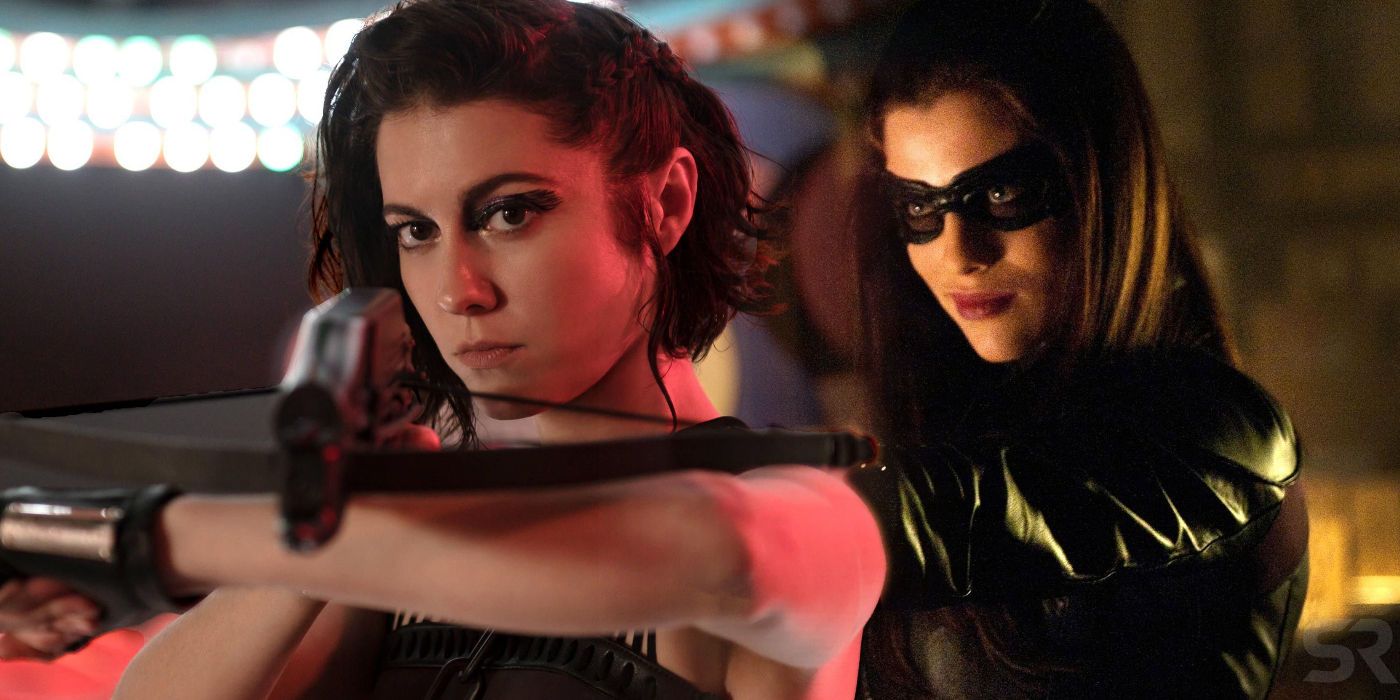
Birds of Prey has roared onto screens with a new live-action version of Huntress; how does the new DCEU version compare to the Helena Bertinelli of the Arrowverse? These are the two most recent times that the DC comics character has made it into live-action, although she's appeared in animation and video games as well as the original comics, and did have a role in the short-lived (and rarely remembered) Birds of Prey TV series. Although she's the same character (theoretically) in each adaptation, the interpretations of the killer with a crossbow are wildly different in each.
As with any character who has left the pages of comic books, quite a bit has changed for Helena between the books and the screen, and not all of it has been for the better. Both Arrow and Birds of Prey make adjustments to her costumes, her look, her backstory, and her personality, as well as her relationships.
Some may argue that the best comic adaptations are those that stick as closely to the source material as possible, but there's definitely something to be said for updating characters and giving them a fresh twist. So of the two, which franchise managed to bring a Bertinelli to life that captured the essence of the original, while also creating something new for fans?
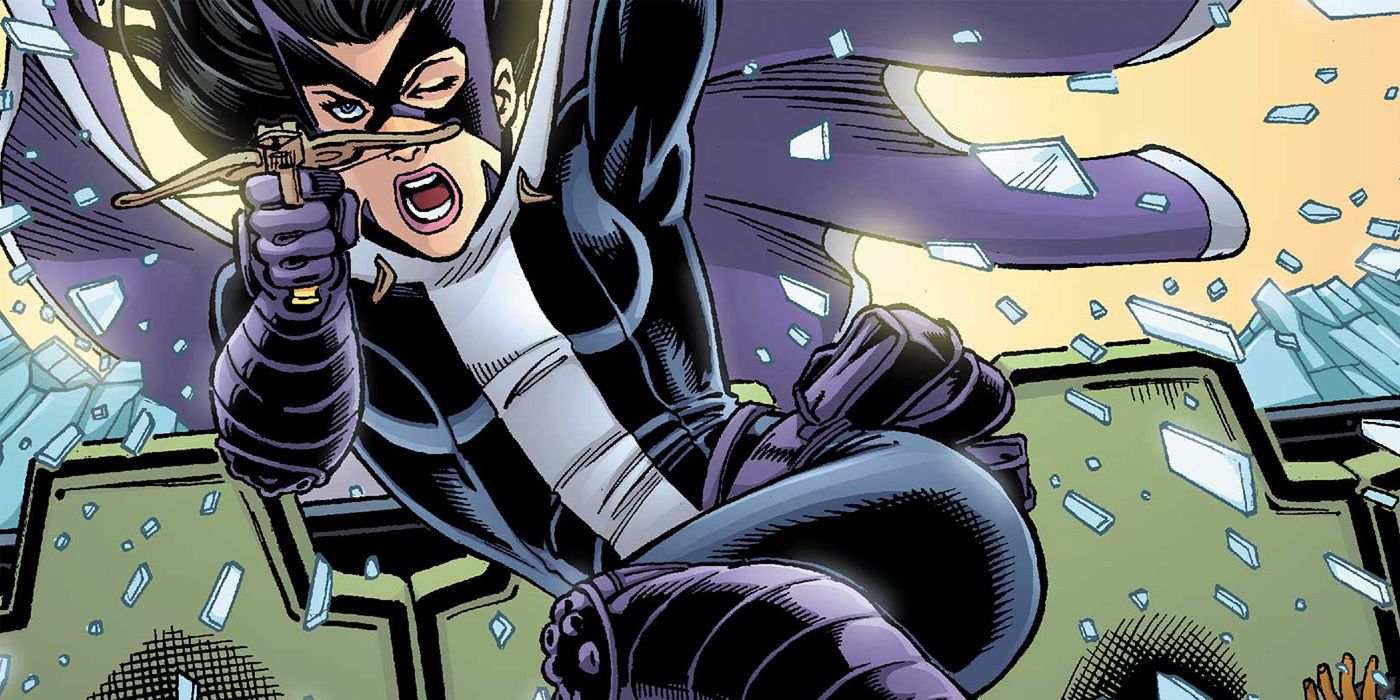
Helena Bertinelli first appeared in 1989, and since then, she has been an increasingly important part of the Bat-family story. Originally, Helena Bertinelli became Huntress after a tragic event in her childhood. She was the daughter of a mob boss in Gotham (or New York, depending on which origin story is concerned); when she was a child, her entire family was murdered in front of her. She traveled to Sicily, trained in combat, and then returned home looking for vengeance. She took inspiration from Batman to adopt a costumed vigilante persona: Huntress.
Helena Bertinelli is a darker character than most in the Bat-family, and although Batman accepts her, he has always disliked the fact that she is more than willing to kill (in fact, she set out to kill at the start, although she does so less and less). She became Batgirl for a short time, but this was never her true place in Gotham; she is best known as being part of Birds of Prey, with Oracle and Black Canary.
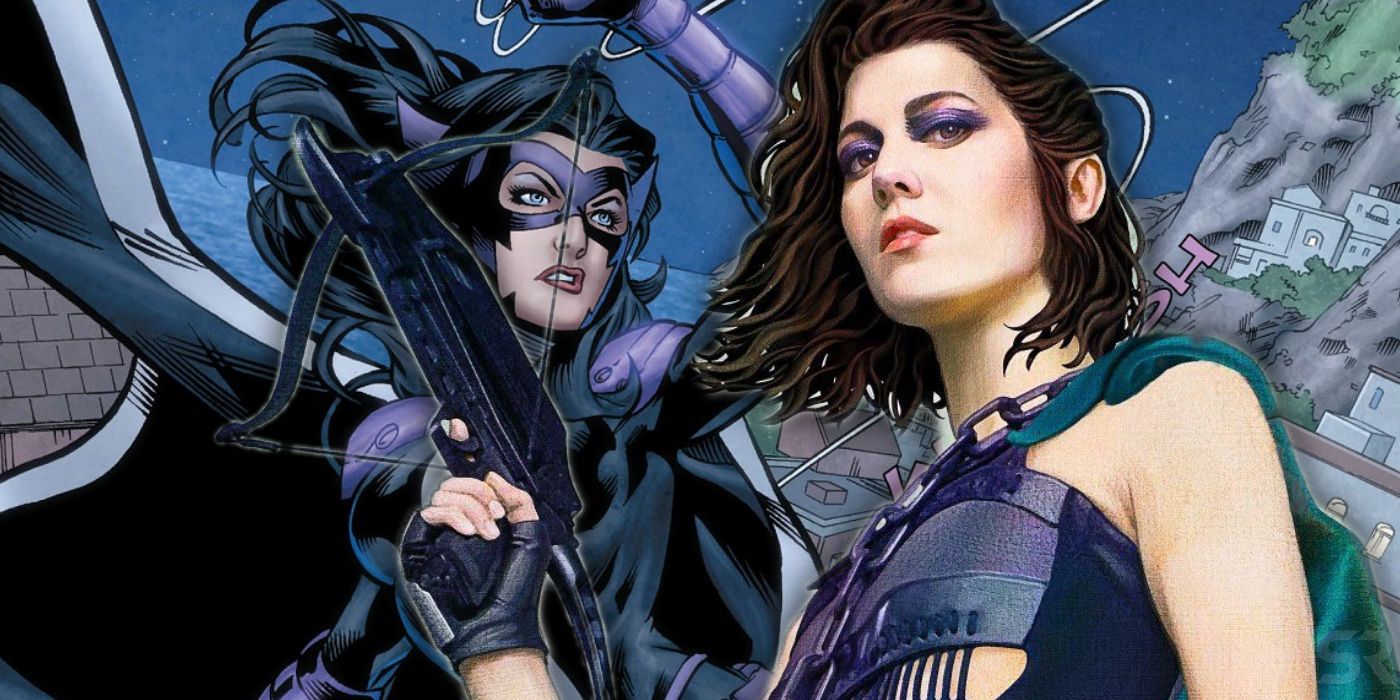
Helena Bertinelli first appeared in Arrow in 2012, portrayed by Jessica De Gouw. Since her season one arc with Oliver, she returned briefly in the second season, and has been mentioned several times since then, although she hasn't been a major part of the show in recent years. This version of Helena Bertinelli is the daughter of Frank Bertinelli, the head of the Bertinelli crime family. In this universe, Helena was happily engaged to Michael Staton, and, hell bent on revenge against her father, was working with the FBI to take him down; however, when her father found out someone was betraying him, he assumed it was Staton and had him killed.
Reacting to this as any woman would, Helena fled to Sicily, trained as an assassin, and came back to kill her father. She also fell for Oliver Queen (Stephen Amell), sleeping with him for a while and making an arch-nemesis of another ex of Queen's, Sara Lance (Caity Lotz). Eventually, she turned against Team Arrow and was imprisoned, although in the Arrow comic series, she broke out and her whereabouts are currently unknown.
In Birds of Prey, Helena Bertinelli (Mary Elizabeth Winstead) has only recently returned to Gotham, having seen her crime family murdered as a child. She was supposed to die too, but a kind-hearted henchman smuggled her out and sent her away to Italy, where she was trained as an assassin. Now, she's back in Gotham to avenge her family's killers. She ends up with Harley Quinn (Margot Robbie) and company largely by accident, as she is hunting down Victor Zsasz (Chris Messina), and finds him as he is, in turn, hunting down Harley Quinn and Cassandra Cain (Ella Jay Basco). The women join forces to take on an army of thugs, before Harley speeds away with Cassandra, and the film ends with Helena founding the Birds of Prey with Montoya (Rosie Perez) and Black Canary (Jurnee Smollett-Bell).
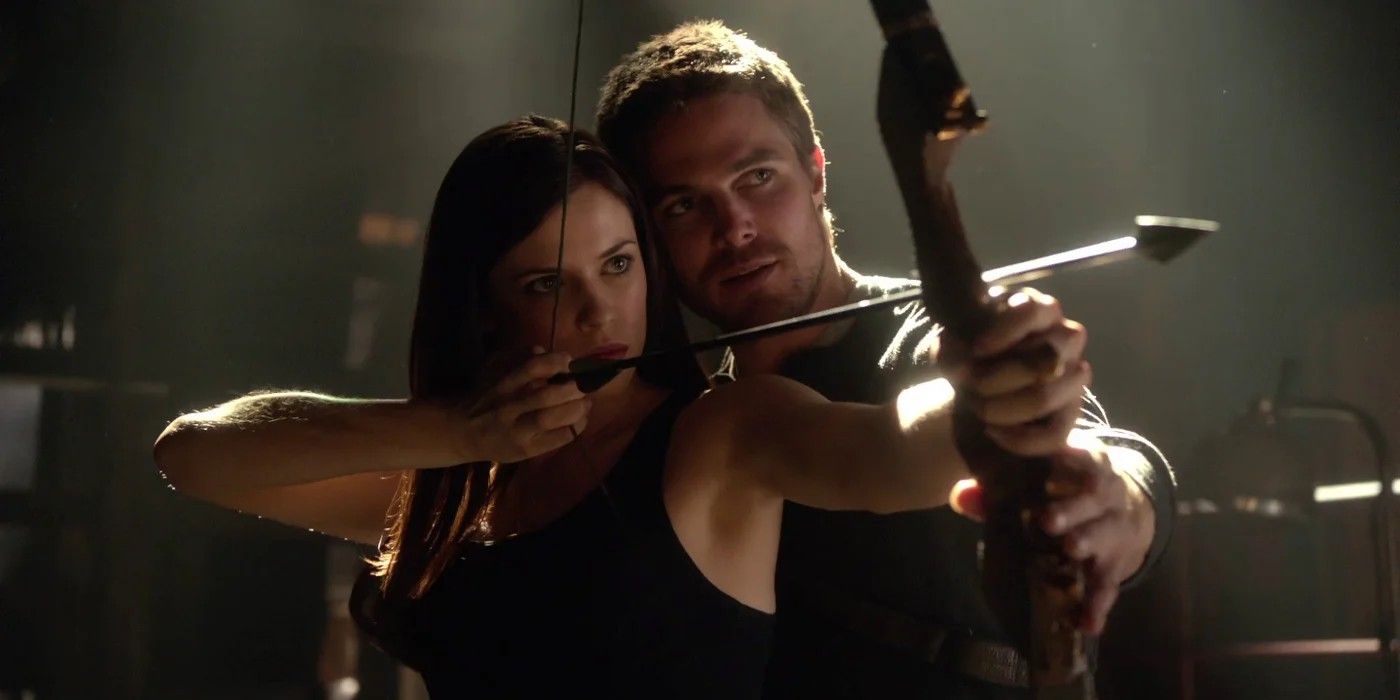
The Helena of the Arrowverse is an interesting twist on the original character, especially as she is seeking vengeance against her family, not for it! In addition, several changes were made in order to better include her with the Green Arrow mythology, rather than the Batman stories that she appears in in the comics. Making her someone who trained as a killer as an adult creates parallels between her story and Green Arrow Oliver Queen's, which made her an excellent foil for him in the first season. Seeing him find someone who was also on a revenge mission was a great way to explore where his limits were, and where he would draw the line on what was appropriate and what wasn't. And, of course, with a series there is always more space to really explore a character, as she has significantly more screen-time in the series than the film, by virtue of the format.
Despite the fact that she gets a solid story arc and some fantastic ass-kicking scenes, there's one major problem with the Helena Bertinelli of the Arrovwerse: she exists almost entirely to react to men, and to showcase Oliver's own development, rather than as a truly independent female character with motivations and purpose beyond that which relates to the men in her life. Her motivation as a whole is reduced from childhood trauma and vengeance for the loss of her entire family, to being angry that her father killed her lover. In addition, while the comic book Bertinelli has a few flings over the years, romance isn't a driving factor for her, but in the Arrowverse, she leaps into bed with Oliver almost immediately, and her story arc as a whole is very romance-driven. Even her rivalry with Sara Lance smacks of jealous-girlfriend tropes, as Sara was also romantically involved with Oliver. While many of the changes made to her character make sense to make her a part of Oliver's story, rather than Batman's, it would have been nice to see her independent of the men around her, at least for a little more of the time.
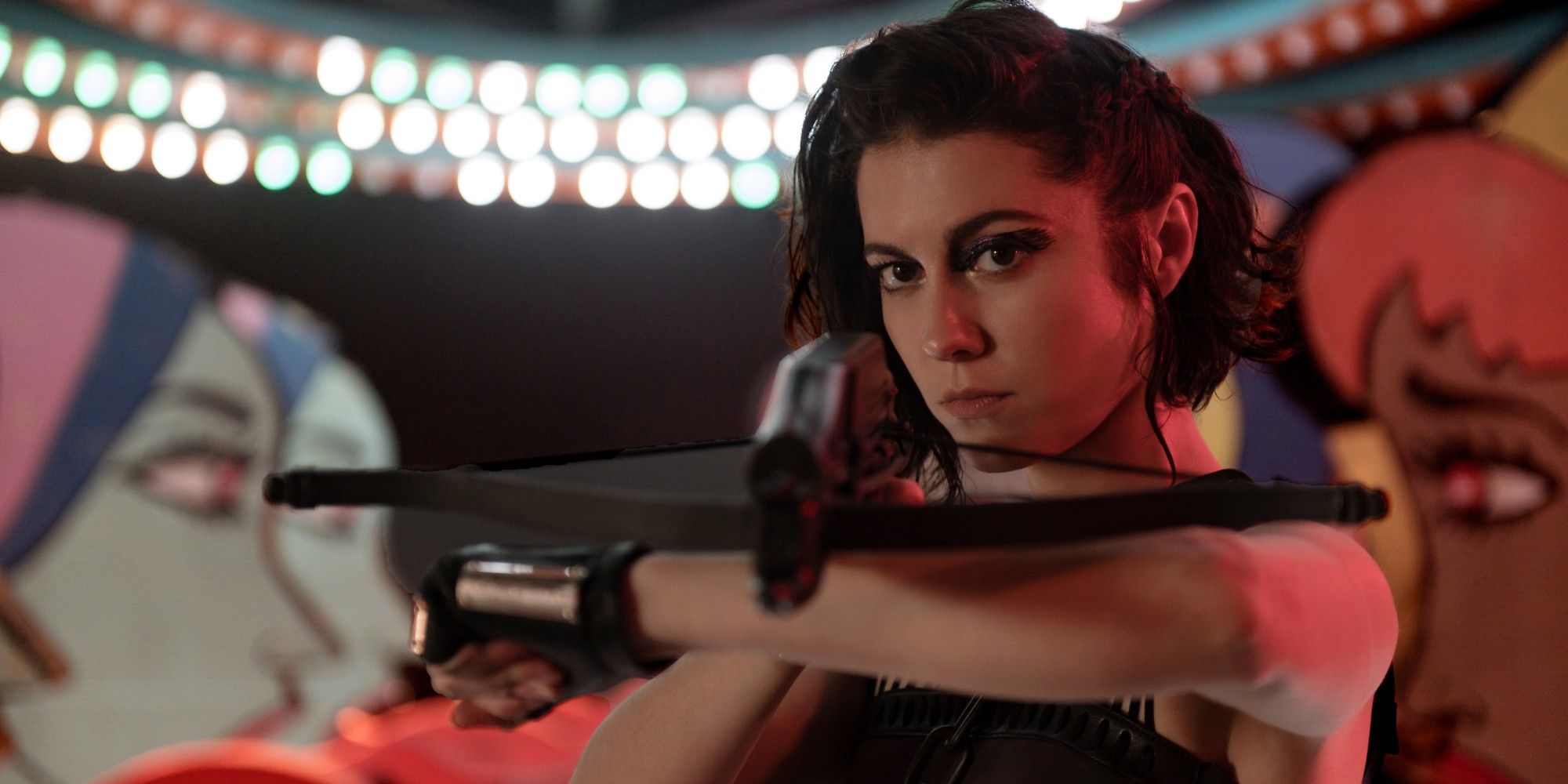
Birds of Prey takes a very different approach to Arrow, and it works wonderfully. This version of Helena sticks very close to the comics in terms of her origin story, but moves quickly past her original vengeance mission and onto the Birds of Prey, which is refreshing to see. Some of her best storylines come from her time as part of the team, and seeing Birds of Prey act as a bridge between introduction and the team is just enough to give new fans an idea of who she is without getting mired in the crime families of Gotham. It also works as a fantastic set up for a real Birds of Prey film, and focuses on Helena as a solo female character, and one who is a little bit lost outside of her original mission.
This is definitely still a change from the original comics, since the comic Huntress is nowhere near as uncertain as the big-screen version, but this is a fantastic change. Birds Of Prey's Helena is still a phenomenal badass, but she brings a lot more humor and humanity to the character. Rather than being focused on romance, this version is struggling to figure out who she is outside of her assassin training and personal vendetta, and seeing her flounder with interactions with the other women and open up to laughing with them at the end is beautiful. She's also more relatable than the stone-cold crossbow killer of the comics, hilariously struggling to perfect her threatening lines in front of the bathroom mirror.
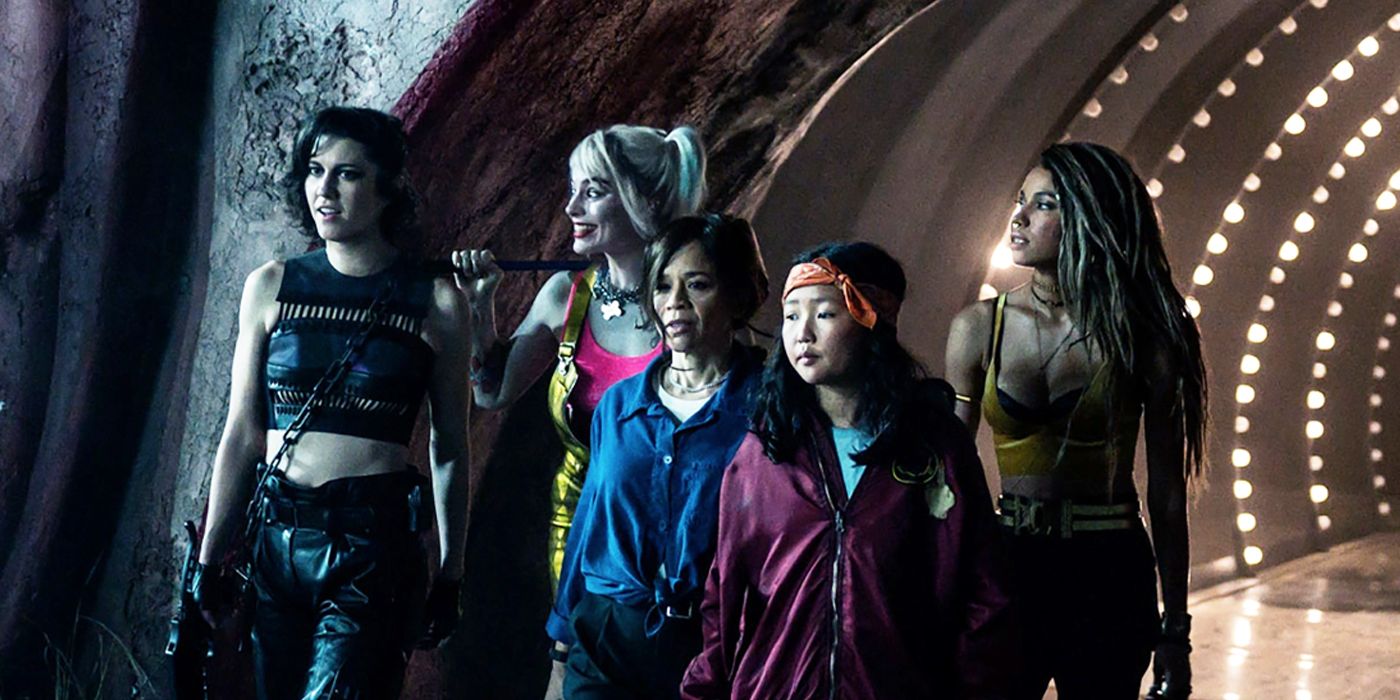
While the Arrow version of Huntress no doubt has her fans, the Birds of Prey version simply brings so much more to the character. This Helena retains the things that make Huntress such a great character — her ruthlessness, her history, and her place with the team — but adds to it more vulnerability and relatability, and a desire for female companionship that even she doesn't seem to realize she has (until she meets the other women in the film). Her Birds of Prey costume isn't comic accurate at all, but it works for the slightly more grounded feel of the DCEU, where the classic eyemask and leotard would just seem silly — although purists may appreciate the fact that the Arrow version manages to bring some of that to live-action and pull it off.
Birds of Prey has created a complicated, human character, one who stands on her own and manages to embody the crossbow-wielding badass of the comics without becoming a two-dimensional "strong female character." She's funny, fascinating, and all kinds of cool, and assuming that there is a Birds of Prey 2 on the way, she'll make an incredible addition to the DCEU.
from ScreenRant - Feed https://ift.tt/3bDBdfd

0 comments:
Post a Comment